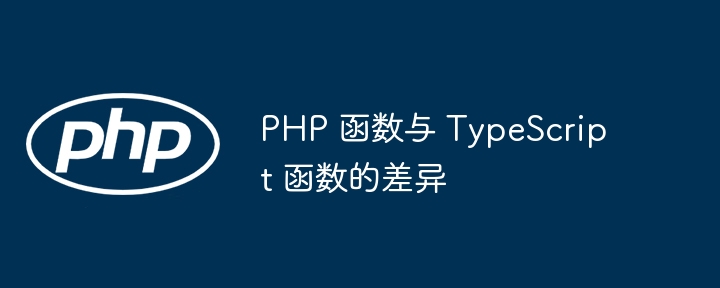
PHP and TypeScript functions have the following main differences in syntax, parameter types, return value types, and practical usage: Syntax: PHP uses the function keyword, while TypeScript requires a typed parameter list. Parameter type: PHP optional, TypeScript required. Return value type: PHP optional, TypeScript required. Practical combat: PHP can omit the parameter type, TypeScript must specify it, and TypeScript will strictly verify the return value type.

Differences between PHP functions and TypeScript functions
PHP and TypeScript are both powerful programming languages, but they are both used in function processing There are some key differences. Understanding these differences is critical for developers to use both effectively in interop scenarios.
Syntax
PHP function: Definition using the function keyword, followed by the function name and parameter list.
function sum(int $a, int $b): int {
return $a + $b;
}TypeScript functions: Defined using the function keyword, followed by the function name and a typed argument list.
function sum(a: number, b: number): number {
return a + b;
}Parameter type
Return value type
Practical Case
Consider the following code snippet to calculate the sum of two numbers in PHP and TypeScript:
PHP
<?php
function add($a, $b) {
echo "The sum is " . $a + $b;
}
add(2, 3); // 输出:The sum is 5
TypeScript
function add(a: number, b: number): number {
return a + b;
}
console.log(add(2, 3)); // 输出:5In PHP, the parameter type of a function can be omitted, but in TypeScript it must be specified. Additionally, TypeScript strictly verifies that the return value type matches the declared type.
Other differences
Conclusion
Understanding the differences between PHP functions and TypeScript functions is critical to using both languages in interop scenarios. Parameter types, return value types, and other syntax differences require careful consideration to avoid errors and ensure the robustness of your code.
The above is the detailed content of Differences between PHP functions and TypeScript functions. For more information, please follow other related articles on the PHP Chinese website!